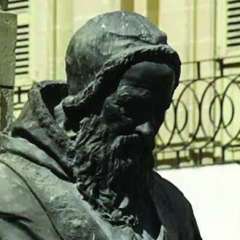Претражи Живе Речи Утехе
Showing results for tags 'why'.
Found 6 results
-
-
Archimandrite Alypius (Svetlichny) on the history and symbolism of liturgical utensils. What Vessels and Diskoses Were Used for the Eucharist After the Edict of Constantine the Great? When Emperor Constantine the Great issued his edict that granted Christians equal rights with the pagans, Christian congregations were finally able to worship openly and to build their churches. New liturgical life started, and it required new liturgical items. Provincial prefects and the emperor himself made generous endowments to the churches, including vessels for the Eucharist. We find it mentioned in the biography of Saint Nicholas the Wonderworker. Eucharist Cup, late 5th century The chalices often had the conical shape of the emperor’s cups. Diskoses resembled plain plates. It was understandable because they would order the usual cups and plates, which rich people used at their feasts. Diskos. 6th century When the believers multiplied, a new custom to drink the Blood of Christ from a Eucharist jug was introduced in some provincial churches. Liturgical scholars suppose that the jugs were used by poor congregations as a substitute for cups. The wine that Christians brought to a church in jugs was used during the Eucharist as the full offering. The jugs were later made either of semi-precious gemstones with Christian symbols on them, or of precious metals, and less often from gilded copper. This tradition gained popularity in monasteries because a deacon would carry the Holy Gifts to hermits after a liturgy. A jug was really practical for that, while the sacred Bread was simply wrapped in a piece of clean cloth. It must be noted that traditionally, almost until the tenth century, the faithful would drink the Blood of Christ straight from the Chalice or from the aforementioned jug, while they received the most pure Body into their hands, later into pieces of cloth on their hands, and they would consume it on their own with awe, but first touching their eyes and foreheads with it. The tradition of giving the communion to the faithful on a spoon started spreading in the Eastern Churches since the 7thcentury. However, they would give only the Blood of Christ on a spoon (this tradition has survived up to now in the Coptic Church). They started dipping the Bread into the cup with the Blood and then distribute the particles of the Body soaked in Blood on a spoon. Roman Catholics would criticize this method in their arguments with the Orthodox. Thus, Cardinal Humbert wrote in his treatise Against the Greek Misconceptions, “Jesus didn’t put bread in a cup and didn’t tell the apostles, ‘Take ye and eat it with a spoon, for this is my Body’… The Lord didn’t offer soaked bread to any of his disciples aside from Judas the traitor to point at the one who was going to betray him.” Thus, the Latin Christians started to pay attention to the historicity of the Last Supper. When and Why Did The Tradition of Giving Communion on a Spoon Arise? Apparently, the tradition of giving communion on a spoon wasn’t related to new concepts of personal hygiene. On the contrary, it reflected a development of a more reverent attitude to the Eucharist and was more convenient when there were too many parishioners willing to take communion. They didn’t need to take the communion in two steps any longer: they received both elements at once. Additionally, in contrast with the Latin tradition, which emphasized the suffering and death of Christ, and therefore used unleavened bread for communion as a symbol of sorrow and death, the Eastern Church shaped her attitude to the liturgical elements through theology. The Churches of the East regarded the Liturgy as the re-enactment of the Resurrection, and therefore the liturgical bread was ‘live’ – it was leavened bread of joy. Naturally, this theology stipulated that the Body had to be mixed with Blood visibly for the faithful to symbolize the restoration of life, i.e., Resurrection. That was why the Body was dipped into the Chalice and then taken out of the Chalice with a spoon. The communion spoon wasn’t actually called ‘a spoon’ (κοχλιάριον); rather, it was called ‘tongs’ (λαβίδα), hinting at the burning coal given to Isaiah by an Angel with tongs (Is. 6:7). Interestingly enough, the first spoons for communion resembled real spoons and were quite big. Until the 18th century, though the spoons became smaller, they remained deep enough to distribute sufficiently large portions of the Wine and the Bread to the parishioners. A Communion Spoon. 17th century There was an alternative method of consuming the Gifts in the middle of the 12th century, when the communion spoons were a new thing: drinking from the Chalice using a special silver straw. This custom saw a widespread adoption in Africa and Spain. However, it didn’t stick, and the silver straws became rare as early as the 14th century. I heard that such communion straws appeared much earlier, possibly even as early as the 6th century, in particular in the Western Church. Hardly anyone knows that a wine strainer was considered a liturgical utensil in the 4th century, too. It was made of silver or other valuable stuff and used to pour wine into the Chalice. Treasure found in the Zion Monastery: chalices, censers, a tabernacle, and a wine strainer in the front row Christians used to bring their own wine and their own baked bread for the Liturgy. The wine wasn’t always high-quality and clean enough. That is why they needed a strainer to filter out possible admixtures. Jugs were used for the Eucharist along with the Chalice until the 14th century; a mural painting in Stavronikita Monastery on Mount Athos depicting the Eucharist allows us to see that monks at Mt. Athos might use a jug for communion up until the 16th century. Therefore, the communion spoon wasn’t universally widespread. Use of a jug implies that the Bread and the Wine were consumed separately. https://blog.obitel-minsk.com/2019/03/when-and-why-did-the-tradition-of-giving-communion-on-a-spoon-arise.html?fbclid=IwAR2DuaWuimMP57VWs0KAUuuo88XubuXKYoVQwlfzGeoibRDr0eU1tCmLGeI
-
After I became convinced by the historic claims of Christianity concerning the person of Jesus, I started looking for a church to call my own and as I did, I quickly became confused by the disorienting variety of teachings and practices among different denominations and this forced me to confront questions about the divisions that exist within Christianity. I started studying Church history and I quickly narrowed my focus to the division between Catholicism and Protestantism. Eastern Orthodoxy didn’t, at that time, register as a contender for one very simple reason. I’m an English speaking white dude in a British commonwealth country. There is a universality to Catholicism that doesn’t exist in the Eastern Orthodox churches. For me to become Eastern Orthodox, I’d have to join a Church with a very specifically ethnic or national identity. When people ask me why I’m not Eastern Orthodox, I’m tempted to get into a theological throw down, but the easiest way to answer that is by pointing out that I’m not Russian, Ukrainian, Greek, or any other ethnicity that the Eastern churches in the city I live in serve. A point of contention at all the major divisions in Christianity has been the focus on authority. So, the East West split focused on the authority of the Pope vs. other bishops and patriarchs. The protestant reformation was about the authority of the Church and the Pope vs. the exclusive authority of scripture, and the English reformation was about the authority of the Pope vs. the authority of the King. So, as you might guess, authority, how it’s defined, and where it resides, seems like a pretty essential component of the faith. So in the case of the East West schism, there were a number of controversies that they were stuck on, but arguably, the most significant one was the disagreement over the authority of the bishop of Rome vs. that of the other patriarchs and bishops. Rome insisted that the bishop of Rome had a unique and universal authority over the entire Church, without which there would be no universal Church, as inherited from the authority of Peter. The Eastern Orthodox side was arguing that the bishop of Rome was a first among equals but only in an honorific way which meant that he had the same authority as the other patriarchs. So that was their position going into the controversy. OK, how true were they to their positions after the controversy had led to an actual division and schism? Well, the West still maintained the conviction that the bishop of Rome had a universal authority over the whole Church. But the East, did not continue to treat the Bishop of Rome as a first among equals. In fact, they excommunicated him which seems like a clear violation of their own claim that no autocephalous patriarch has authority over another. The honor of first among equals has since been designated to the Patriarch of Constantinople. Jesus wanted his followers to be one as a sign of his divinity to the world. Between East and West, from what little I know of it’s history, I only have ever seen major attempts from the West to realize that unity. Through the councils of Lyon and Florence, the East’s bishops conceded Rome’s position on Papal Supremacy, the Filioque, and purgatory, but the unity that was struck fell apart when the Eastern delegates went home and succumbed to political pressure there. Rome has always been the initiator of ecumenical dialogue, from what I’ve seen. It was at the first Vatican Council that the mutual excommunications of 1054 were lifted. It was the second Vatican council that made ecumenism a high priority for the Church moving forward which paved the way for the joint theological commission of East and West. It was Pope John Paul II and Pope Benedict XVI who recited the Nicene Creed with Eastern patriarchs without the filioque. It was the bishop of Rome who first visited the East. It wasn’t until 1995 when the Patriarch of Constantinople finally visited Rome. Last week I made a video about why I never became Eastern Orthodox and it got a lot of reaction, which is great, but that reaction was quite polarized and there seemed to be a lot of misunderstanding about what I was trying to say in that video, so I wanted to take some more time to address some of the feedback as well as the misunderstandings from the previous commentary. The first thing I’d want to point out and re-emphasize is that the perspective I’m trying to share on this topic is more personal than anything else. Some people complained that my presentation of the history and theology of the great schism was too one sided. And that’s completely true. It’s the same criticism or disclaimer I made about it at the beginning of the video by saying that it wasn’t supposed to be an apologetic about why Catholicism is right and Eastern Orthodoxy wrong. It was about my reasons for not being Catholic as opposed to Eastern Orthodox which is going to be inherently one sided. Ultimately, I’d hate for people to think that I’m positioning myself in an adversarial way towards Eastern Orthodoxy because the honest fact is, I do find the peculiarities in Eastern Christianity extremely attractive. I like a lot of the simplicity of it, I like icons, I absolutely LOVE eastern architecture. I love how you’ve been so steadfast against the aberrant currents of modernism, and I could go on. So let me try to dispel what I think is the biggest misunderstanding from the last video which is that some people thought I was criticizing ethnic or national churches which is definitely not what I was trying to say. I think it’s great that there are particular churches that express the theology, liturgy, and spirituality of a particular heritage. The point I was trying to make about the universality of the Church, is that there needs to be a way for those national churches to express their communion and universality with one another. So in the Eastern Orthodox Churches, from what I understand, they would say that their universality is expressed in their common theology… their orthodoxy. But the question for me has always been, how is that common theology defined? How do you make sure that as new difficulties and controversies arise the entire Church responds to address them? Well, if there’s no one final authority, like we have with the Pope, then you’d need an ecumenical council where all the patriarchs and bishops gather to define doctrines and settle controversies. But for the Eastern Orthodox, as they are known today, there hasn’t been an ecumenical council in over 1000 years. And meanwhile, Rome never stopped calling and hosting ecumenical councils through the centuries. So there seems to be something, to me, about the Eastern Orthodox Churches that keeps them frozen and unable to reaffirm the universal aspect of our faith because there isn’t one unifying voice to bring them together in an ecumenical way. In evaluating the East West schism, I tried to find a similar easy to identify and understand argument. Something that made one of the positions self refuting and I felt like I found it in the Eastern position and that’s what I was trying to emphasize in my last video. I was interested in trying to discover which Church stayed true to the very thing they were contending in the division itself. The Eastern bishops maintained that the Bishop of Rome was the first among equals but not supreme in authority. But after the schism, they excommunicated him and haven’t once shown him that kind of honor since, so they’ve betrayed their own position. Now some people responded to that by saying, the Pope excommunicated the patriarch of Constantinople too, which is true. But in so doing, he was acting in accord with the argument that the West was making which is that he had universal authority. The East was saying that the authority of those ancient sees ended there. Constantinople couldn’t tell Rome what to do and vice versa. But in, excommunicating the Pope, they were contradicting themselves and their own arguments. So, I hope that provides some more clarity for what I was trying to say in my last video and again, don’t take my word as some kind of authority because I’m not. Based on my comprehension level, these are the points I found persuasive. You should go do your own research because it matters, and it’s pretty interesting. The Wikipedia article on the East West schism is actually a great resource so, I’ll link it in the description.
-
Za Juanita, evo jednog teksta u kojem Soroš govori na Cato seminaru, kritikuje on tu i tržište, tržišni fundamentalizam, teoriju racionalnih očekivanja, Hajeka, Popera, objašnjava zašto finansijska tržišta trebaju biti regulisana, kritikuje i državu, govori o svojoj teoriji itd. I koliko se god ja ne slagao sa njim, koliko god on lupao o Hajeku jer ga nije dovoljno čitao posebno Poredak slobode i kasnije knjige, on meni djeluje bliže klasičnim liberalima nego neki libertarijanci Meni je čak i prihvatljiviji jer se bori i protiv raznoraznih političkih rasista, totalitarizma itd. Naravno da i on koristi sve i svašta kako bi uticao na političke izbore, potplacuje itd. By GEORGE SOROS 04/28/11 03:00 PM EDT Share on Facebook Share on Twitter Friedrich Hayek is generally regarded as the apostle of a brand of economics which holds that the market will assure the optimal allocation of resources — as long as the government doesn’t interfere. It is a formalized and mathematical theory, whose two main pillars are the efficient market hypothesis and the theory of rational expectations. This is usually called the Chicago School, and it dominates the teaching of economics in the United States. I call it market fundamentalism. I have an alternative interpretation — diametrically opposed to the efficient market hypothesis and rational expectations. It is built on the twin pillars of fallibility and reflexivity. I firmly believe these principles are in accordance with Hayek’s ideas. But we can’t both be right. If I am right, market fundamentalism is wrong. That means I must be able to show some inconsistency in Hayek’s ideas, which is what I propose to do. Let’s start with Hayek’s influence on the twin pillars of my interpretation. I was a student at the London School of Economics in the late 1940s and read the great methodological controversy between Karl Popper and Hayek in Economica, the school’s periodical. I considered myself a disciple of Popper. But here I was on Hayek’s side. He inveighed against what he called “scientism” — meaning the slavish imitation of Newtonian physics. Popper took the opposite position. He argued in favor of what he called the doctrine of the unity of science — that the same methods and criteria apply to all scientific disciplines. I was drawn to this controversy by my interest in Popper. I had read his book, “Open Society and its Enemies,” in which he argued that the inconvertible truth is beyond the reach of the human intellect, and ideologies that claim to hold this truth are bound to be false. Therefore, he argued, they can be imposed on society only by repressive methods. This helped me see the similarity between the Nazi and communist regimes. Having lived through both in Hungary, it made a great impression. This led me to Popper’s theory of scientific method. Popper claimed that scientific theories can never be verified — they can only be falsified. So their validity is provisional — they must forever remain open to falsification by testing. This avoids all the problems of needing to prove scientific theories beyond any doubt and establishes the importance of testing. Only theories that can be falsified qualify as scientific. While I was admiring the elegance of Popper’s theory, I was also studying elementary economics. I was struck by a contradiction between the theory of perfect competition, which postulated perfect knowledge, with Popper’s theory, which asserted that perfect knowledge was unattainable. The contradiction could be resolved by recognizing that economic theory cannot meet the standards of Newtonian physics. That is why I sided with Hayek — who warned against the slavish imitation of natural science and took issue with Popper — who asserted the doctrine of unity of method. Hayek argued that economic agents base their decisions on their interpretation of reality, not on reality — and the two are never the same. That is what I call fallibility. Hayek also recognized that decisions based on an imperfect understanding of reality are bound to have unintended consequences. But Hayek and I drew diametrically opposed inferences from this insight. Hayek used it to extol the virtues of the invisible hand of the marketplace, which was the unintended consequence of economic agents pursuing their self-interest. I used it to demonstrate the inherent instability of financial markets. In my theory of reflexivity I assert that the thinking of economic agents serves two functions. On the one hand, they try to understand reality; that is the cognitive function. On the other, they try to make an impact on the situation. That is the participating, or manipulative, function. The two functions connect reality and the participants’ perception of reality in opposite directions. As long as the two functions work independently of each other they produce determinate results. When they operate simultaneously they interfere with each other. That is the case not only in the financial markets but also in many other social situations. I call the interference reflexivity. Reflexivity introduces an element of unquantifiable uncertainty into both the participants’ understanding and the actual course of events. This two-way connection works as a feedback loop. The feedback is either positive or negative. Positive feedback reinforces both the prevailing trend and the prevailing bias — and leads to a mispricing of financial assets. Negative feedback corrects the bias. At one extreme lies equilibrium, at the other are the financial “bubbles.” These occur when the mispricing goes too far and becomes unsustainable — boom is then followed by bust. In the real world, positive and negative feedback are intermingled and the two extremes are rarely, if ever, reached. Thus the equilibrium postulated by the efficient market hypothesis turns out to be an extreme — with little relevance to reality. Frank Knight was the first to identify the unquantifiable uncertainty inherent in financial markets. John Maynard Keynes and his followers elaborated his insight. Classical economists, by contrast, sought to eliminate the uncertainty connected with reflexivity from their subject matter. Hayek was one of them. The methodological debate in Economica took place in the context of the larger political controversy over the role of the state in the economy. Hayek was on one side, Keynes and socialist planners on the other. But Hayek subordinated his methodological arguments to his political bias. That is the source of his inconsistency. In the Economica, he attacked scientism. But after World War II, when the communist threat became more acute, he overcame his methodological qualms and became the apostle of market fundamentalism — with only a mild rebuke for the excessive use of quantitative methods in his Nobel Prize acceptance speech. Because he was fighting communism, a scientific theory that proved that market participants pursuing their self-interest assure the optimum allocation of resources was too convenient for him to reject. But it was also too good to be true. There are some inconsistencies in the Chicago School brand of economics, the author writes. | AP Photo Why I agree with (some of) Hayek By GEORGE SOROS 04/28/11 03:00 PM EDT Share on Facebook Share on Twitter Human beings act on the basis of their imperfect understanding — and their decisions have unintended consequences. That makes human affairs less predictable than natural phenomenon. So Hayek was right in originally opposing scientism. At the time of the Economica articles, Popper was between Hayek and the socialist planners. He was just as opposed as Hayek to communism’s threat to individual liberty, but he advocated what he called piecemeal social engineering rather than laissez-faire. Here I sided with Popper. But Popper and Hayek were not that far apart. I was influenced by both — and I also found fault with both. By identifying Hayek’s inconsistency and political bias, I do not mean to demean him — but to improve our understanding of financial markets and other social phenomena. We are all biased in one way or another and, with the help of reflexivity, our misconceptions play a major role in shaping the course of history. Because perfection is unattainable, it makes all the difference how close we come to understanding reality. Recognizing that the efficient market hypothesis and the theory of rational expectations are both a dead end would be a major step forward. As in that earlier time, the political controversy on the role of the state in the economy is raging today. But the standards of political discourse have greatly deteriorated. The two sides used to engage in illuminating arguments; now they hardly talk. That is why I was so pleased to accept this invitation to the Cato Institute. As I see it, the two sides in the current dispute have each got hold of one half of the truth. which they proclaim to be the whole truth. It was the hard right that took the initiative by arguing that the government is the cause of all our difficulties; and the so-called left, in so far as it exists, has been forced to defend the need for regulating the private sector and providing government services. Though I am often painted as the representative of the far left — and I am certainly not free of political bias — I recognize that the other side is half right in claiming that the government is wasteful and inefficient and ought to function better. But I also continue to cling to the other half of the truth — namely that financial markets are inherently unstable and need to be regulated. Above all, I am profoundly worried that those who proclaim half truths as the whole truth, whether they are from the left or the right, are endangering our open society. Both Hayek and Popper, I believe, would share that concern. Those of us concerned with the protection of individual liberty ought to work together to restore the standards of political discourse that used to enable our democracy to function better. George Soros is the founder of the Open Society Foundations and author, of “The Crash of 2008 and What It Means: The New Paradigm for Financial Markets.” This is an excerpt of a speech Soros is giving at Cato Institute on Tuesday. The event is being livestreamed at www.cato.org beginning at 4 p.m. Tuesday, and will be available on the site after.
Све поруке на форуму, осим званичних саопштења Српске Православне Цркве, су искључиво лична мишљења чланова форума 'Живе Речи Утехе' и уредништво не сноси никакву материјалну и кривичну одговорност услед погрешних информација. Објављивање информација са сајта у некомерцијалне сврхе могуће је само уз навођење URL адресе дискусије. За све друге видове дистрибуције потребно је имати изричиту дозволу администратора Поука.орг и/или аутора порука. Коментари се на сајту Поуке.орг објављују у реалном времену и Администрација се не може сматрати одговорним за написано. Забрањен је говор мржње, псовање, вређање и клеветање. Такав садржај ће бити избрисан чим буде примећен, а аутори могу бити пријављени надлежним институцијама. Чланови имају опцију пријављивања недоличних порука, те непримерен садржај могу пријавити Администрацији. Такође, ако имате проблема са регистрацијом или заборављеном шифром за сајтове Поуке.орг и Црква.нет, пошаљите нам поруку у контакт форми да Вам помогнемо у решавању проблема.
![]() © ☦ 2021 Сва права задржана.
© ☦ 2021 Сва права задржана.





